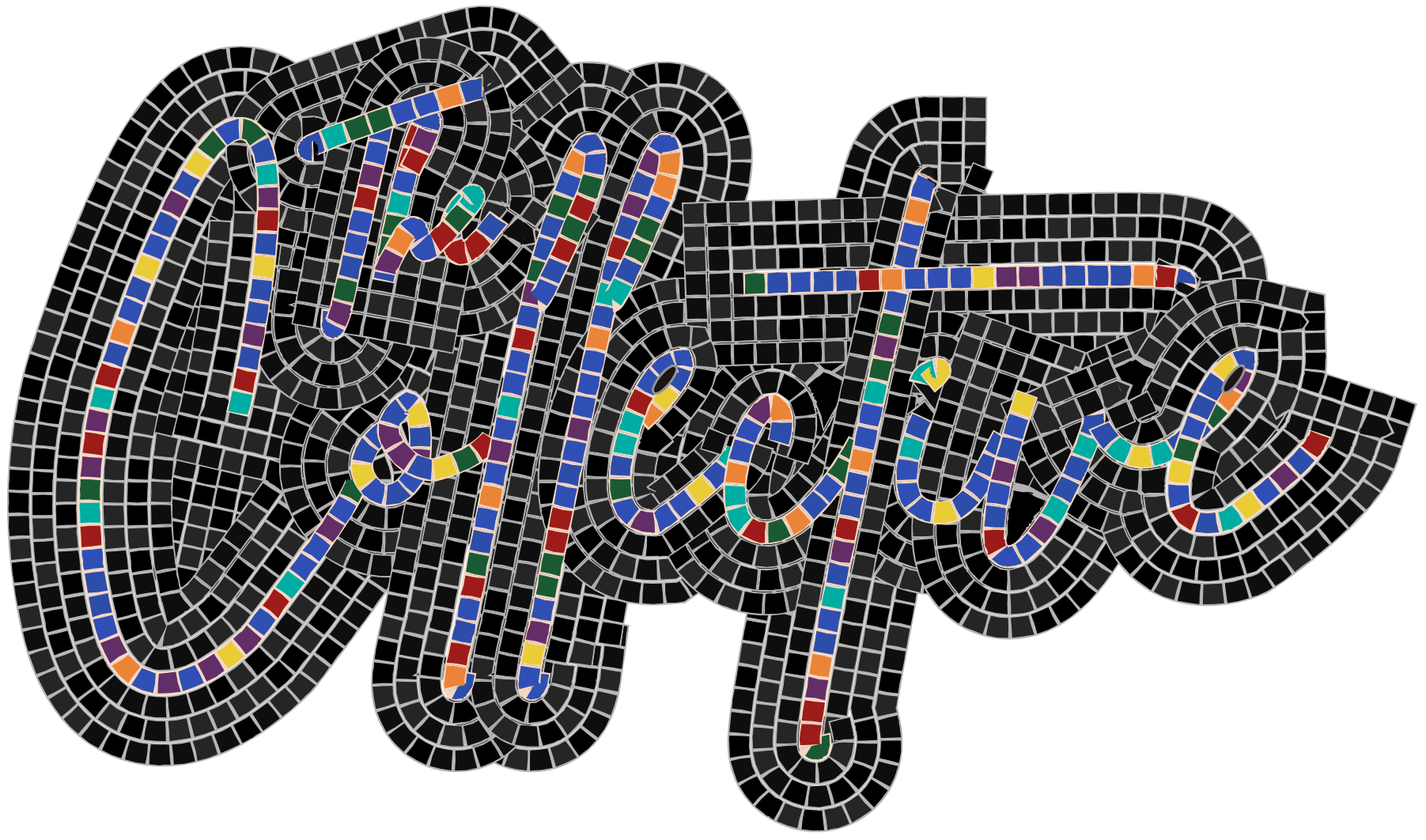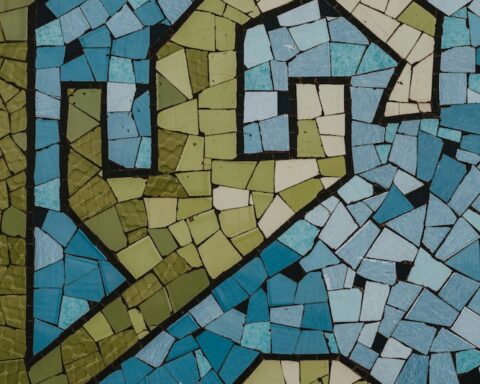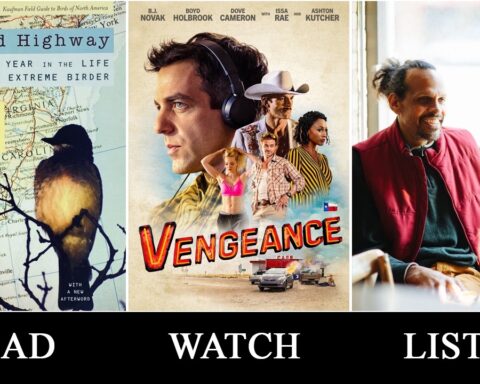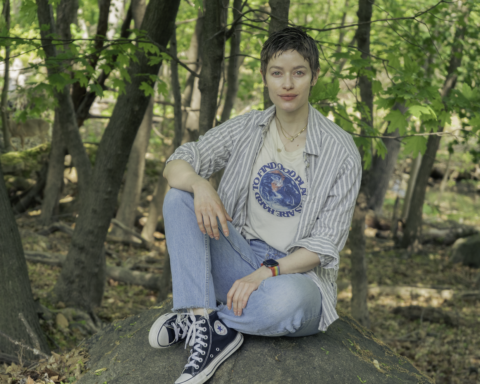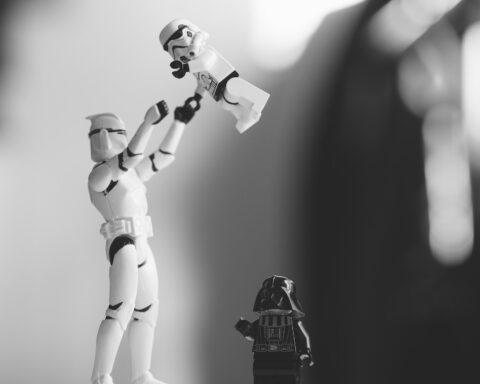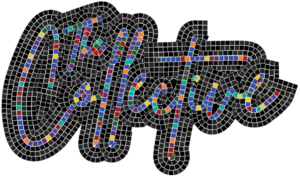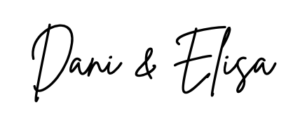Of bath bombs and dentists
was what I was thinking when it became clear, dear reader, that I could not write what I wanted to write unless I wrote something else entirely. That is, of course, what I said to myself last issue as well. Unfortunately, we may find ourselves in a real Lacanian pickle here, in which what I really want to write is none other than the Real itself, and thus what I really want to write is always already soaked in vinegar… and just out of reach. It is with that in mind that I provide four short meditations that I hope will lay the groundwork for a more substantive if not unwieldy article in the near future. The style is similar to my other stuff, a style I will label here as “pseudo-poetics” in a nod to the insufferable overuse of “pseudo” that follows.
TL;DR: I take as a starting point “movement” as such, and end up somehow discussing aesthetics and politics, like usual.
Movement
- something required in an objective sense. Our burning blue marble hurtles through the universe, we atop it, our very matter bent in spacetime towards it. Yet to us, does the world not seem still?
- something required by our unwitting master, Capital. Exchange of the incommensurable. The incessant movement of value. How many iPhones is my ginger tea worth? Ha! Is it not magical that I can produce a meaningful answer to that question?
So, to not be moving, to be still, even in semblance, is in contradiction to both objective reality and the whim of Capital. Our ability to experience the world as still and our ability to think — to not simply do or (re)act but to consciously consider and critically theorize — are surely co-constitutive in some way. What I want to say is that our phenomenological capacity to arrest the dynamism of objective reality, a thoroughly natural act, is intimately related to our critical faculties. It is in the resonance their pause produces that I wish to dwell for but a moment.
Never Stop Never Stopping
is the humorous tagline of the Lonely Island mockumentary Popstar. And while it is indeed worthy of a chuckle, its comedic genius lies in its accidental truth content: is there no better motto for our current economic culture? Our moment is not defined by a blistering pace, but rather by a relentless churning. Always be doing. Hustle. Side-hustle. But also relax, recharge, and converse your energy — all accomplished best via privileged consumption. Self-care as doing, as movement, as de-radicalized commercial industry.
The issue, of course, is determining what it would even look like to stop never stopping. Because, of course, the pseudo-non-doing of commercial self-care isn’t inherently bad; rather, the badness lies with the current neoliberal economic order that makes the self-care industry possible. Self-care becomes important when material conditions demand a soul-sucking “hustle” in order for even basic material needs or aspirations to be met. The modern self is truly conceptualized as a machine — you wouldn’t leave a machine running all the time, would you? Regular maintenance is crucial for the self to continue functioning in the economic system, and so Capital has privatized and commodified the maintenance of self for our convenience. Rather than pointing at the system, we need only look in the mirror. Therapy and bath bombs for all! If you can afford them, that is…
And yet, even critique itself is just pseudo activity,
isn’t it? Undoubtedly in almost every case today. Humanity has not suffered from a lack of critical or radical social analysis for decades, if not centuries. In fact, we are drowning in critique. What humanity really lacks is the desire, or dare I say the collective will, to do anything about that which it critiques. The System (no, I don’t feel the need to parse or nuance the heterogenous, interrelated, and co-constituted complex of monstrous mechanisms that work together) has incorporated critique into itself, even requires it now that there is a veritable industry built in its honor. And so, academics and/or social justice activists hold rallies, marches, debates, conferences, etc. in the name of “doing something.” In the name of “making a difference.” Movement forever! And then little to nothing changes in any structurally meaningful way. But capital continues to circulate thanks to the travelling, lodging, materials, and, god forbid, ticket sales or registration fees required for these activities. Curious.
Slavoj Žižek makes this point clearly in his work. While my first encounter with this idea was in a delightful and almost slim volume under the title of Violence (2000) that I picked up a couple years back in a bookshop in Kosovo (a fact that feels poignant), he has rearticulated it in later works, and it feels even more true today:
“The threat today is not passivity, but pseudo-activity, the urge to ‘be active,’ to ‘participate,’ to mask the nothingness of what goes on. People intervene all the time, ‘do something’; academics participate in meaningless debates, and so on. The truly difficult thing is to step back, to withdraw. Those in power often prefer even a ‘critical’ participation, a dialogue, to silence — just to engage us in ‘dialogue,’ to make sure our ominous passivity is broken.”

The distressing and controversial point this makes is that, believe it or not, the powers that be would much rather you do something like vote and be pissed about the results than see you deliberatively apathetic towards the whole institution of voting. The System can handle your critique. What it can’t handle is you not giving a shit.
Politics is just aesthetics
with extra steps. But really, I find myself having arrived, once again, at what is a refrain in my thinking, what I consider to be perhaps the crucial insight into our modern predicament: “politics” as we understand it today has become aesthetics; it gives nothing but a sensual expression of change/progress/governance. This insight, articulated in the 1930s by a German Jewish philosopher staring down the barrel of fascism, remains painfully true. His antidote? To politicize art — a curious and deceptively simple phrase that philosophers since have continued to wrestle with, none so well as Susan Buck-Morss. And while I could, dear reader, offer you a laundry list of reading materials to make my point in some straightforward and helpful way, please allow me to reject such orthodoxies and instead riff freely a while longer, lest I myself accidentally fall into pure pseudo-activity…
It is here, at the intersection of politics and aesthetics, that the resonance between our critical faculties and phenomenological capacities is able to be most clearly articulated: to have “an aesthetic experience” is to conceptualize something as an aesthetic object and contemplate it as such. One could walk through an art gallery as though one were in a dentist’s office hallway, disregarding the objects on the wall as mere background (no offense to the oft banal decorating talents of oral care specialists). But once an object is properly engaged by the senses as more than background, there is a necessary convergence of critical faculties and phenomenological capacities; the object, in this case a painting, brings our sensuous experience to a halt, however brief, and our critical faculties begin to whirl in a frenzy, however listlessly. This is true of all art forms — to engage is to engage in critique, to make an evaluation, even if that evaluation is only “meh, so what, my dentist plays better music in the waiting room.” It is this “aesthetic experience” that I wish to posit as the potential site of withdrawal from which we are able to gain a true reprieve and produce a true critique — because it is experiencing an object as aesthetic, as art, that necessarily grants us critical distance from the object of consideration. Once a thing becomes an object, something we can sensuously and conceptually parse and evaluate, it gains the potential for distance-making. Which means we gain the ability to stop tapping along to the insufferable lobby MUZAK dulling our senses and wake up for a moment.
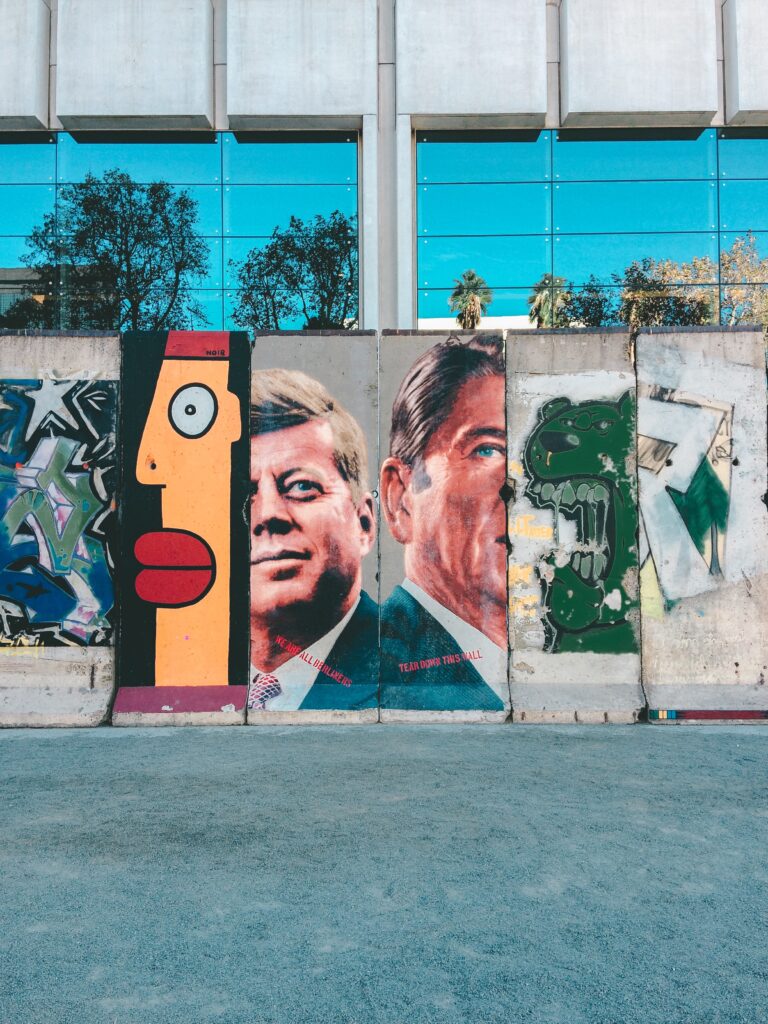
But here is my more original contribution to this discussion: I believe our distance from the 1930s and the perverted use of politics’ corpse by Capital’s media and technology corp since then suggests a different antidote to the problem of politics as aesthetics. Indeed, politicizing art is still a legitimate if not necessary response (more on this in a future article), but perhaps a true dialectical reversal is needed alongside it: let us treat politics as what it truly is now — as pure aesthetics — which would allow us to plug our nose, take a breath, and take its unsettling, grotesque disfiguration as an object of contemplation. As an aesthetic object, politics necessitates critique, but also invokes distance and reprieve. And this critique it necessitates is not some bland pointing to a singular aspect (X or Y person/party/institution isn’t very nice to Z kinds of people), but one of pointing to the entire system as such (wow, why do we even use the alphabet?).
The point is that if politics as we know it is in fact aesthetics, then we no longer need to do politics as we know it. We can see it as an object of contemplation, not a system in which to participate. So I wonder, to what true action — what movement, if you will — might our contemplation lead?
No dentists were harmed in the making of this article. In truth I haven’t been to a dentist in years and their offices could be much better than I remember them. Doubtful, but possible. Yes, my teeth are still fine, mom.
